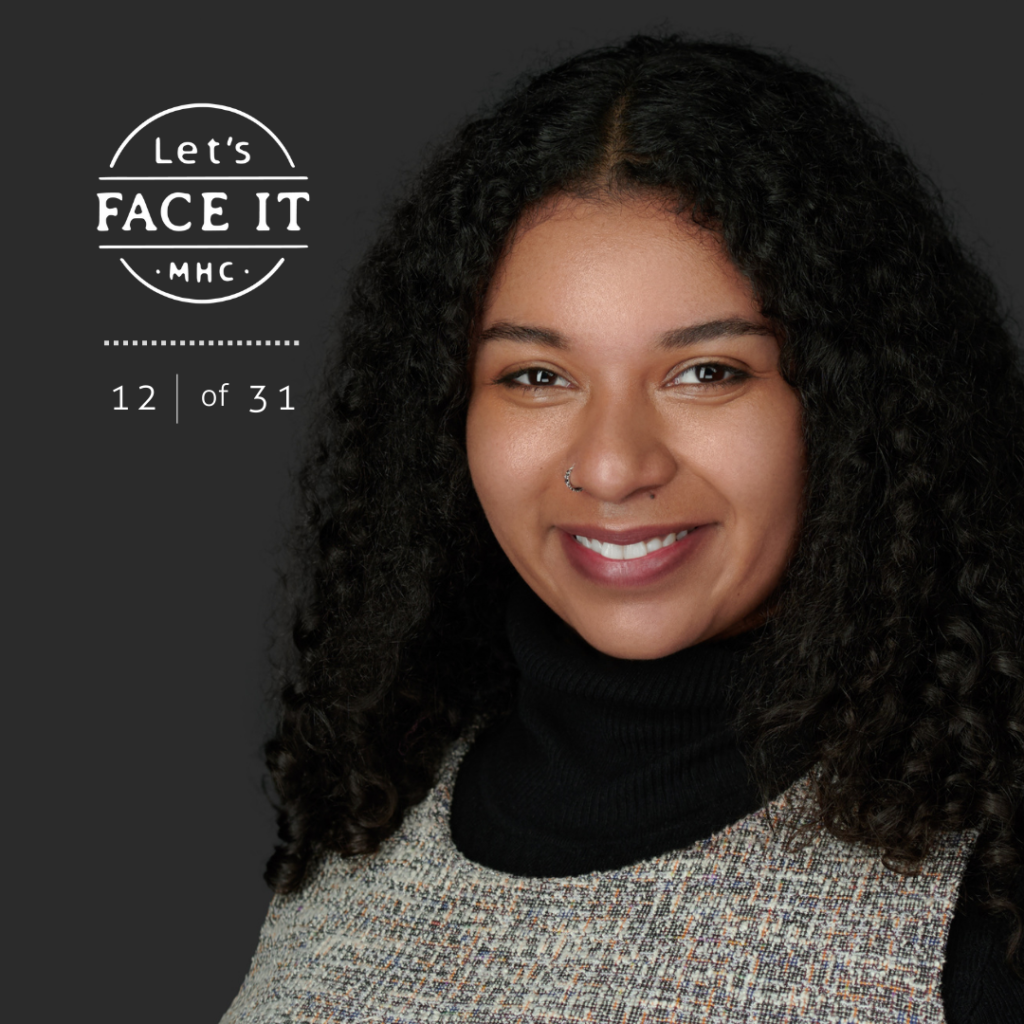 Jazz Borst wants people to know it’s okay not to feel okay.
Jazz Borst wants people to know it’s okay not to feel okay.
“I know for sure it’s difficult for a lot of folks to talk about how they’re feeling,” says the Mending Art program specialist at Mental Health Connecticut. “Sometimes it’s a self-stigma we put on ourselves. When we do let those conversations happen, though, people are usually open [to hearing them].”
Beyond her MHC work, Borst knows talking and reaching out can help based on her own lived experience. She started struggling with anxiety in college with her last year being particularly challenging. “I was having a hard time even leaving the apartment,” she says, adding she would often shop for groceries at night when fewer people were around. “Something about going outside and having all these people around gave me all this anxiety. It started affecting my day-to-day life.”
Borst finished college and went home to regroup. “Sometimes I felt that self-imposed stigma,” she says. “I was reluctant to talk to my mom. I wouldn’t ask for help. [I thought] I’ll figure it out on my own when really I couldn’t figure it out on my own. I needed other people to talk to. I needed professional advice.”
It was after moving with her mother to Connecticut a couple years ago that Borst admitted she needed help. “My family could tell I was not in a good space. One day my mom sat me down and said, ‘We need to bring you somewhere to talk about what’s going on with you.’”
“It’s helped me to get a hold of my life again so I can show up every day,” she says, “maybe not exactly as I want to but I’m getting there. I’m amazed at where I am now. The shift of moving to Connecticut and talking to a doctor really was the start.”
That change helps Borst in her work with others with lived experience and is why she wanted to share her story of self-stigma.
“People hold back because it’s scary. It’s scary to show up and be truly honest about how you’re doing and feeling when you’re not quite sure how it will be received or if anyone really understands,” she says. “There’s a lot of putting on a mask, showing up to spaces and acting like we’ve got it all together. It can be scary to say I’m not going to pretend today. It’s one of the biggest things that holds people back, feeling like people don’t understand or that they will be shamed. We shouldn’t have to feel ashamed.
“We should feel like we feel and be able to get the help we need,” Borst adds. “The longer you stay in shame, the longer you’re going to stay in that place where you’re not getting the help you deserve and need.”
Each day in May, you will meet a new face and a new lived experience, because #LetsFaceIt there is no one-sized fits all when it comes to our wellbeing. View past posts here.
Looking for resources or support in CT but don’t know where to start? Contact MHC’s free Information & Referral line: https://www.mhconn.org/education/information.

